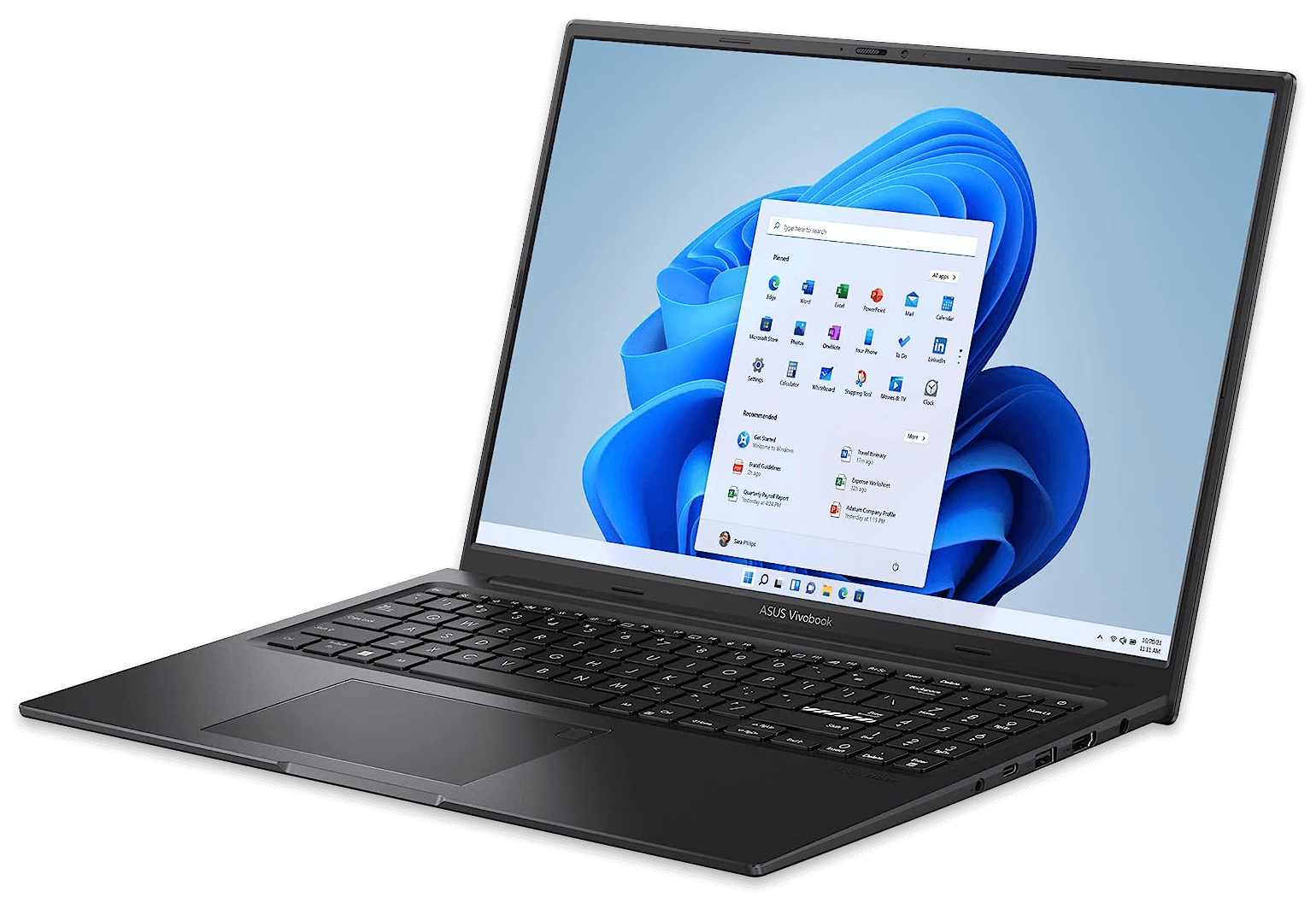Laptop
A laptop, also known as a notebook, is a portable computer with a built-in LCD screen, keyboard, and trackpad. A laptop's screen is on a hinge, which allows it to open up when in use and to close like a book to keep it safe when stowed away. A laptop computer also includes a battery that allows it to run anywhere, regardless of whether or not there's a power outlet nearby. Built-in Wi-Fi networking, and in some cases LTE or 5G cellular connectivity, allows a laptop to connect to and browse the Internet without any wires at all.
Many laptop computers use mobile processors and chipsets designed for the needs of mobile computers — primarily, low power usage. Low-power CPUs and GPUs help the battery last longer and produce less heat, making them more comfortable to use. However, even though laptops are far more compact than desktop computers, they are not necessarily less capable. High-end laptop processors perform just as well as desktop processors, allowing professionals to work effectively from any location. They typically include several I/O ports, including multiple USB or Thunderbolt ports, and sometimes an HDMI port. Laptops can also connect to external displays and use USB and Thunderbolt hubs to expand connectivity, allowing one to serve as a desktop replacement that can travel when necessary.

Some laptops also include tablet-style touchscreen displays, providing an additional way to interact with it. Some laptops, known as convertible laptops, blur the line between tablet and laptop even further by allowing you to open the screen all the way around to the back. This turns the laptop into a tablet, albeit one with a keyboard and trackpad on the back. While operating in tablet mode, the laptop turns off the keyboard and trackpad and relies entirely on the touchscreen for input.
Every component of a laptop computer is tightly integrated to make it as compact as possible. While this helps with portability, it also means that laptops are much more complicated to repair since components are typically soldered directly onto the motherboard. This integration also prevents a laptop from being upgraded later, since you cannot swap out a laptop's RAM, graphics card, or SSD with a newer part. For that reason, it's wise to thoroughly consider your needs before purchasing a laptop since you won't have the chance to upgrade it later.
 Test Your Knowledge
Test Your Knowledge